Celebrate the Everyday Places of NYC from Bike Shops to Bodegas
In the new book, The Cities We Need, a photographer and urbanist share images and stories from overlooked but vital city spaces!


The line forms as early as 8:30 a.m. Bronx families push their personal shopping trolleys to the corner of Westchester and Trinity Ave and stand next to Mt. St Mary’s Park, rain or shine. Anticipation builds among the crowd of residents who, by now, know the City Harvest tents and what they mean for their families. Trucks filled with free fresh produce and dry goods will save those in line an expensive trip to the grocery store. The trucks are unloaded for the next hour until finally, the hands of a green-shirted volunteer fill the first cart in line with a plethora of potatoes.
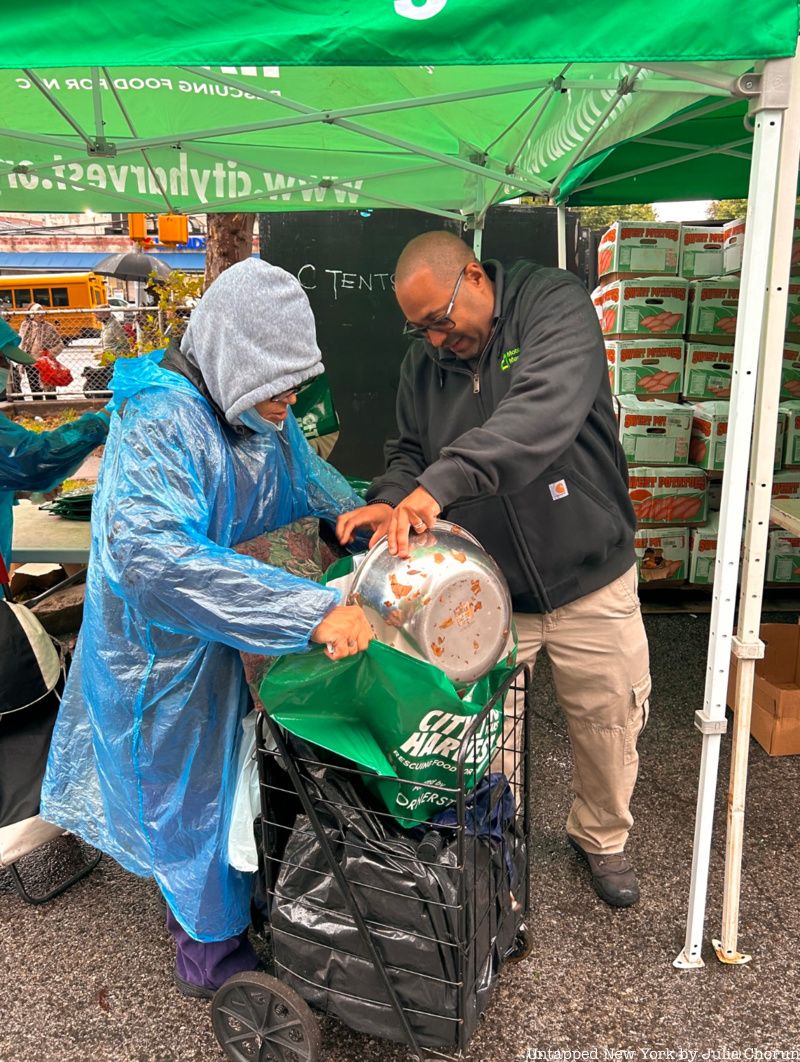
City Harvest started small, with a mission to rescue quality restaurant leftovers that were usually turned to waste. 22 years later, the non-profit began rescuing food from farms across the nation and delivering food donations directly to the community at mobile markets that so many New Yorkers rely on today. At the center of it all is Pedro Urbaez, Associate Director of Program Operations at City Harvest. For over 12 years, Pedro has contributed to on-site efforts in every borough of NYC, ensuring that food-insecure residents have access to free, healthy groceries and nutritious cooking lessons.
Pedro: My original job at City Harvest was running these mobile markets and on a regular day when you are doing this work, you get here early, the truck shows up and it stages the food and we run a free farmers market-style distribution. So my day would consist of making sure that we set up, that everybody is able to have enough food, and that everybody goes home happy with some wonderful quality produce. At this moment in time as associate director, my job is to make sure that the team that I have is able to distribute all the food – which this year will be around 77 million pounds – to every single program that we have available. So all the soup kitchens, pantries, programming, mobile markets, all those 77 million pounds, we want to make sure it has a home.
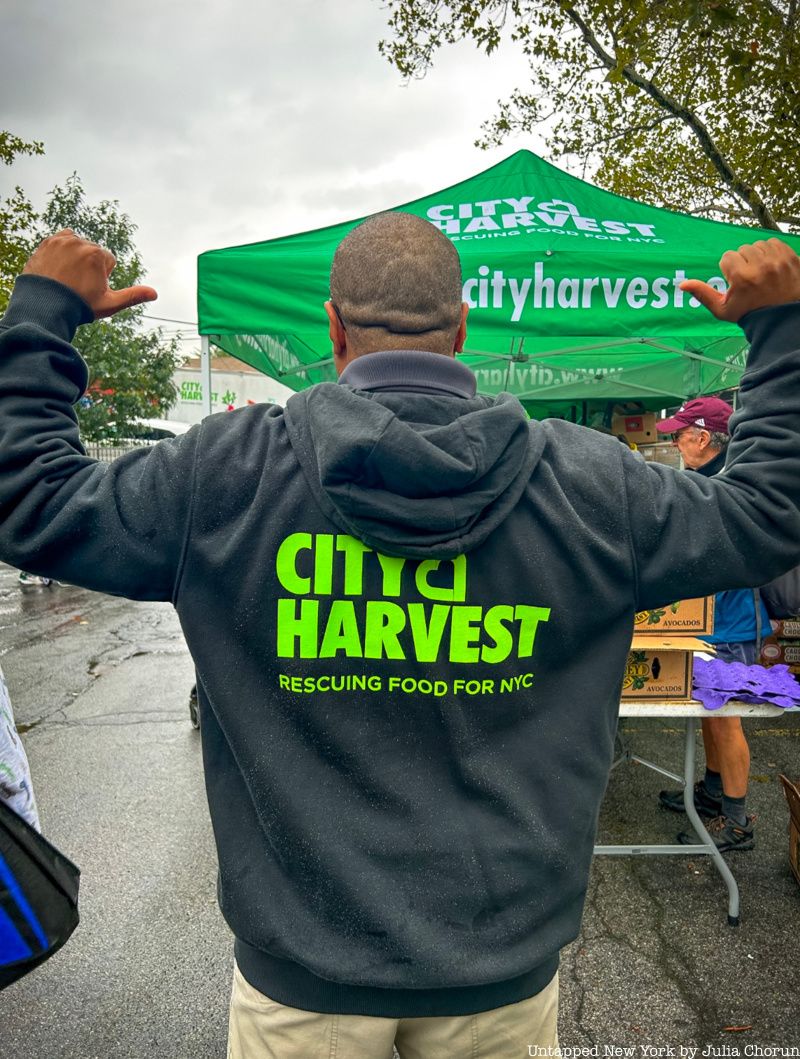
Pedro: City Harvest procures food through our supply chain team who has access to be able to call and find out if there are any farms or in some cases retail, not here, but farms across the country. They have excess food and we rescue it from them and we bring it into our warehouse in Brooklyn. Our organization is the first and largest food rescue organization in New York City and we’ve been operating for over 40 years.
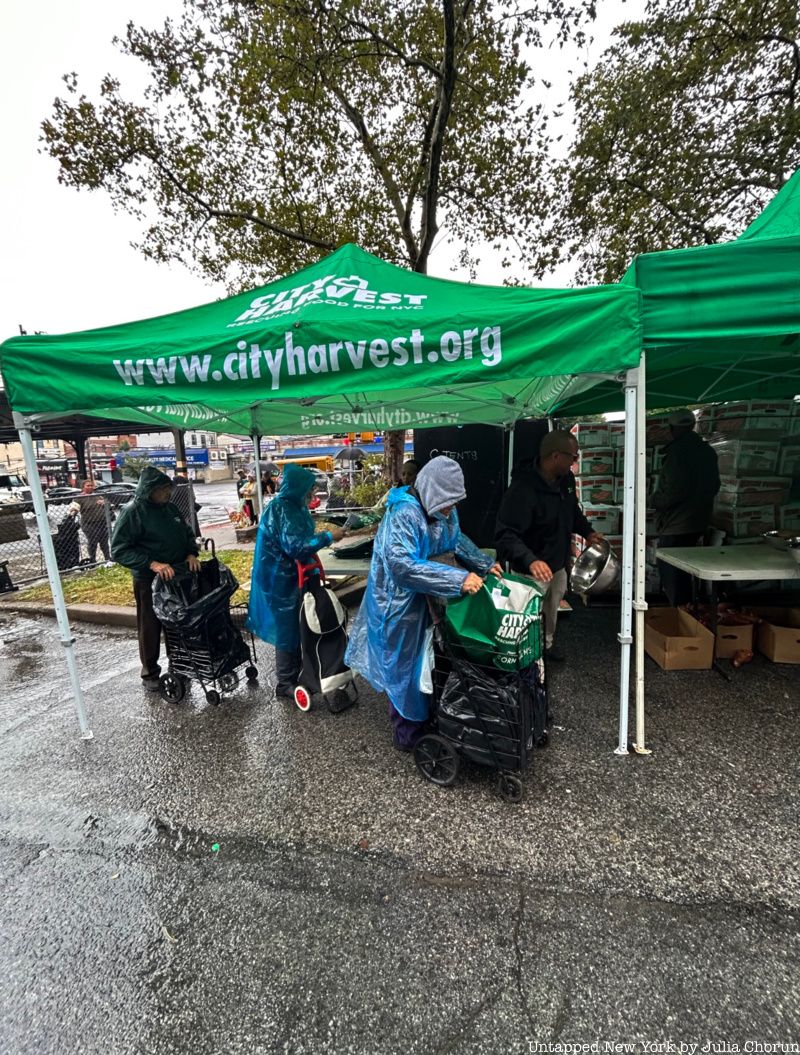
Pedro: The idea is that in a perfect world, we would cease to exist, right? Everybody would not be food insecure and people would be able to have the food that they need to feed their families and do it in a healthy, respectable manner. But the reality is that right now inflation is very high. The need is greater than it was before the pandemic. We plan to keep providing fruits and vegetables and nutritious food to those who need it.
Pedro: In my opinion, the greatest accomplishment that City Harvest has been able to do was to be able to continue to operate during the pandemic and surpass the 100 million pound distribution mark during that time frame.
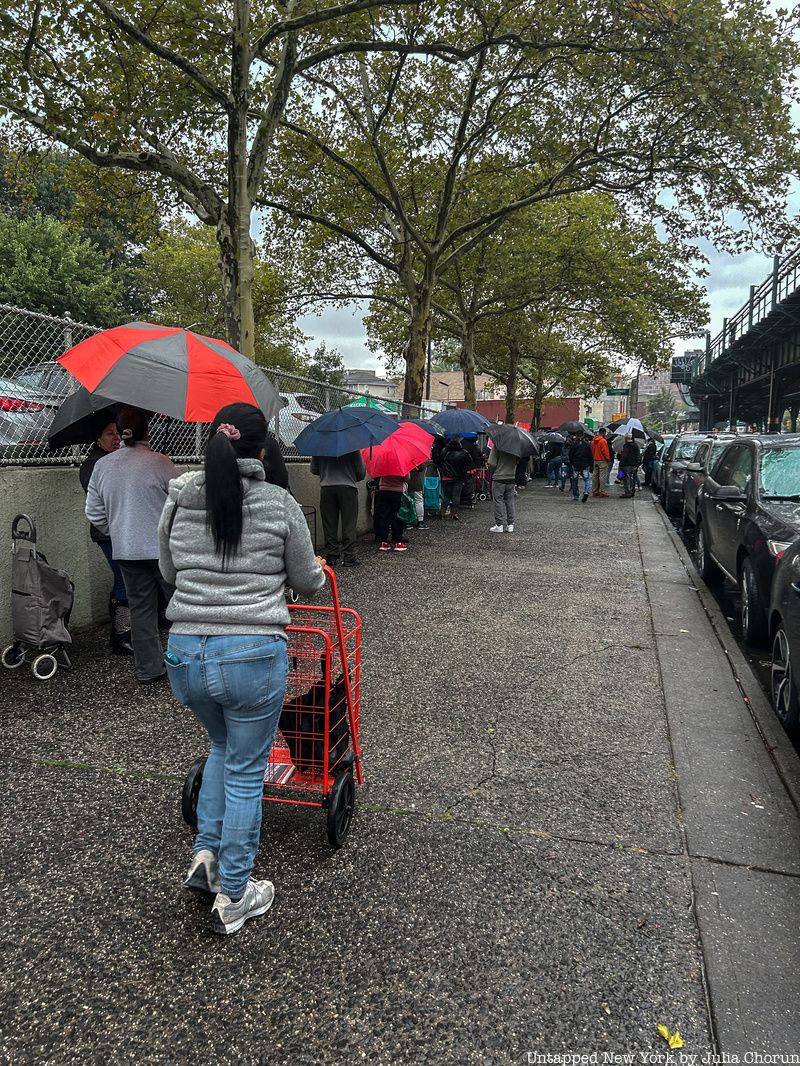
Pedro: Throughout the pandemic, we never closed. The idea was that we knew there was going to be a need and we wanted to fulfill that need. We continued to deliver food to pantries that were open and our mobile markets remained open throughout that time. In actuality, the need increased as a result of folks not being able to work, those who lost their jobs, and so on and so forth. So we continue to provide food just like we did before the pandemic, but with a large increase because of the high need of the city shutting down.
Pedro: Me personally, growing up in New York City and being born and raised in Queens, I know what it feels like to be food insecure and I know many friends who were and I remember clearly going to food pantries as a child and my friends going to food pantries. So I know what it feels like to be food insecure. I know what it feels like to be in one of these lines and I know that the most important part of it is that you want to be treated with dignity and respect when you are here and that’s what we strive to do here at City Harvest.
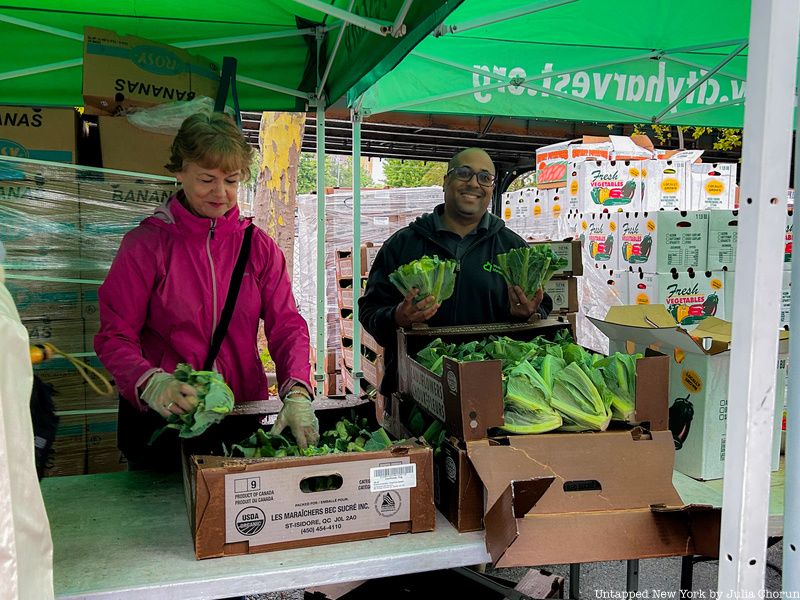
Pedro: I think the best part about this work is that no day is the same. You might see the same people come to the markets to receive food but they’re also evolving so I get to see children who grew up coming to the market. I get to see residents become healthier, lose weight, and change their lifestyles. So you see the evolution of each neighborhood that I participate in.
Pedro: So when I’m not working for City Harvest and helping the people of New York City, I am a huge baseball fan and spend a lot of my time at City Field watching the New York Mets. I am a huge music fan and my podcast (which isn’t operating right now) is a moment for folks like myself and my partner at the time to talk about whatever’s happening in music. So it’s not a specific genre, but we talk about music and movies, music awards, and albums that we like. We even talk a little bit about nostalgia as well, music that we enjoy that people might not know about. My favorite genre is freestyle, Latin music, TKA, George Lamar, Judy Torres.
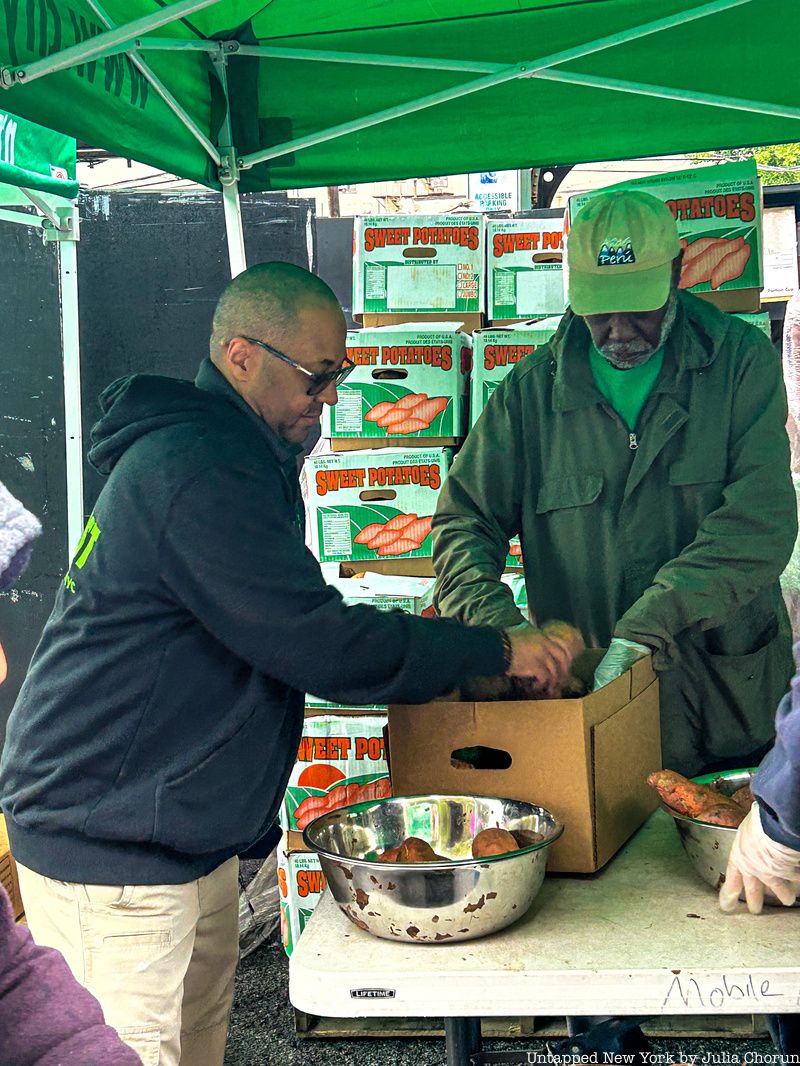
Pedro: I would love SNAP and the access to food to just be easier and have fewer restrictions. I think it’s very important that food is the one thing that people don’t [not buy] when they need to pay a bill or they don’t have a lot of money and I think that it should just be an easier process.
Pedro: I think what makes New York so great is that it is 24-hour, you can get up at any time and do whatever it is that you want. There’s access to so many cool things you can do for free. It’s just a wonderful city. So many languages spoken, so many different types of people. If you can make it here, like they say, you can make it anywhere.
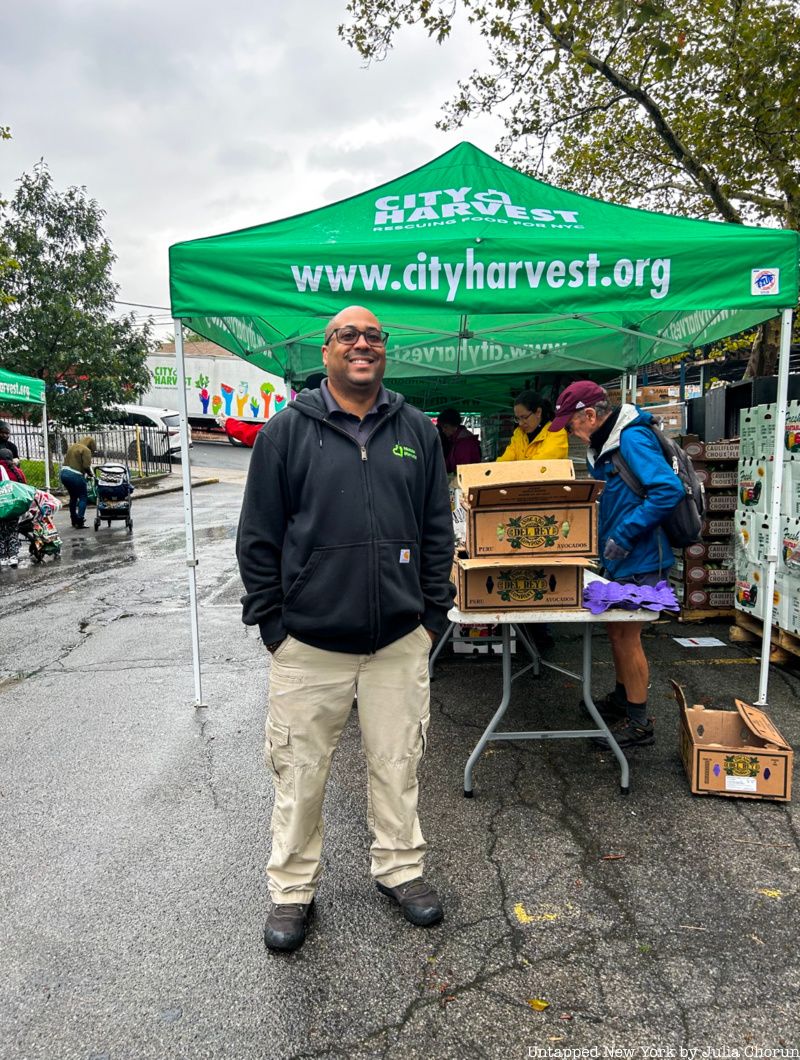
Pedro: So there’s a restaurant in Harlem called Lido’s, it’s an Italian restaurant and it was the place where I had my first real date with my now wife. And it is incredible food. We go there all the time and I recommend every single person to go there.
Pedro: If there is one thing I would like to change about New York City is that I wish affordable housing was actually affordable. It’s very difficult for folks to survive in the city, which is why you see a trend of people leaving because it’s not easily affordable to live in.
Next, Read about NYC Makers: Q&A with Broadway Costume Designer Paloma Young
Subscribe to our newsletter